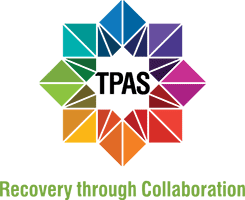By: Laura Eshelman
The 16th century British playwright Thomas Dekker once wrote, “Sleep is the golden chain that ties health and our bodies together.” Knowledge of sleep hygiene and its connection to wellbeing can be traced back even further to ancient Greece, where the medical scholar Hippocrates named sleep as one of the six most important elements of health maintenance. Yet, thousands of years later, we are still learning new connections between sleep and overall health. Sufficient sleep is crucial for daily cognitive functioning, such as task comprehension and memory, but what are its implications for mental health?
In a culture that prides itself on productivity and work ethics, and increasingly on round-the-clock availability of services, it’s hardly a surprise that many of us are chronically under-rested. The American Academy of Sleep Medicine recommends at least seven hours of sleep a night for adults and, according to the National Sleep Foundation, at least 35% of U.S. adults fell short of this in 2021 (Sleep by the numbers.). Furthermore, our quality of sleep is often spotty; the NSF also reports that between 10 and 30% of U.S. adults struggle with falling and staying asleep, and that up to 90% have an electronic device in their bedrooms, which can disrupt or interrupt important parts of our sleep cycles. Additionally, up to half of U.S. adults report feeling tired during peak daytime hours from three to seven days out of the week, a finding that is exacerbated for the approximately 16% of adults who work outside of traditional work hours. (https://www.npr.org/sections/health-shots/2024/04/16/1244136216/burnout-late-shift-overwork-depression). This group is often made up of younger adults who are particularly vulnerable to being diagnosed with mental health conditions later in life.
It remains true for most of us that, no matter how solid the evidence may be that good sleep is integral for optimal mental health, life’s challenges can get in the way of sleep hygiene. Factors such as work demands, parenting, living environments, and other external stressors may compete with a regular sleep schedule. Notably, our reliance on technology poses a hazard to sleep hygiene that did not exist before the advent of LED screen technology. The blue light that our smartphones, televisions, and laptops emit has been shown to interfere with the brain’s ability to produce melatonin, as well as the circadian rhythm cycles necessary for dreaming (https://www.health.harvard.edu/staying-healthy/blue-light-has-a-dark-side). In other words, even for adults who are able to sleep for 7 hours a night, blue light from screens can compromise our quality of sleep and leave us feeling less alert in the morning.
Though links between adequate sleep and both mood and cognition have been thoroughly researched, more recent findings also detail how the brain’s ‘waste removal’ system during sleep can prevent depression and more serious neurodegenerative conditions (https://www.npr.org/sections/shots-health-news/2024/06/26/g-s1-6177/brain-waste-removal-system-amyloid-alzheimer-toxins). Scientists now believe that the brain, using electrical signals, filters brain cell ‘waste’ fluids into our kidneys and liver for removal while we doze; at least one of these waste products, called amyloids, is tied to the onset of Alzheimer’s. The importance of uninterrupted sleep also may increase as we age. The American Journal of Preventative Medicine reported in 2023 that adults over 50 who slept five or fewer hours each night showed a 30% higher risk for development of dementia (https://www.ajpmonline.org/article/S0749-3797(23)00009-0/fulltext).
While the links between inadequate sleep and poorer mental health outcomes are numerous, what are the benefits of a healthy sleep routine? In short, the answer is “a lot”, and many of those benefits have reciprocal relationships with regular full nights of rest. For one, people who are more well-rested tend to be less depressed, anxious, or irritable, and an improved mood seems to lead to both earlier bed times and better physical health—and people who are in better physical shape seem have an easier time achieving the rest they need. The relationship between sleep and cognition (i.e., memory, learning and focus, and decision-making) is similar, and interconnected. People receiving recommended amounts of sleep seem to be able to store and process information, manage stress, and make important decisions more effectively than those who do not. Moreover, some research indicates that those who routinely stay up late are more likely to make decisions in the witching hours that negatively impact their ability to sleep well the next night, such as nocturnal eating, consuming alcohol and other substances, and additional exposure to blue light (Night owl behavior could hurt mental health, sleep study finds). All of this has particularly important subtext for people who are already living with a mental health diagnosis, as regular sleep can help prevent distressful symptoms association with challenges like bipolar disorder, PTSD and schizophrenia.
CooperRiis’s integrative, ‘whole person, whole body’ approach to treatment may be ideal for individuals whose struggles with sleep and co-occuring mental health challenges make life difficult to manage. Staff at CooperRiis can work with people who need extra support in restructuring their daily routines to wake up rested, often with a combination of a balanced diet, a regular schedule, and both prescribed medications and supplements to promote sleep hygiene. With help from clinical and residential staff, residents can find opportunities to practice lifestyle changes (reduced tech time and caffeine use, meditation practices, wake-up reminders, etc.) that they can turn into habits for healthier sleep long completing CooperRiis’s programs.
Identifying and implementing habits that sustain healthy sleep patterns can take time, trial, and error. However, the benefits of receiving the right amount and the right quality of rest are indelible for human brains at all stages of life and can be a reality—not simply a dream—for people seeking to achieve personal mental health goals.









